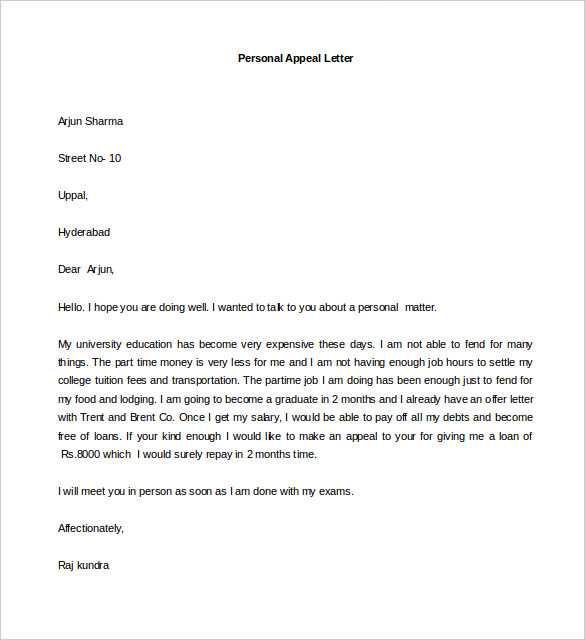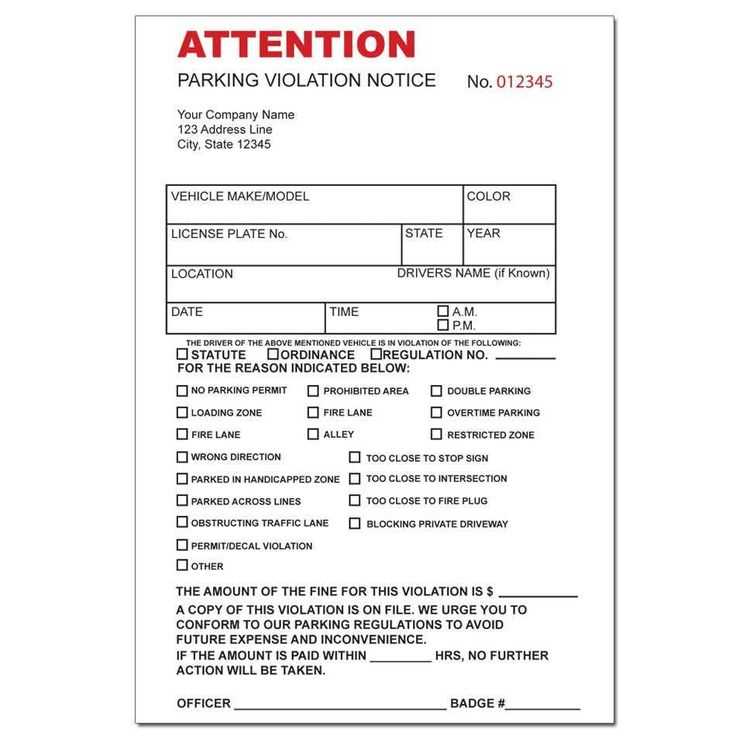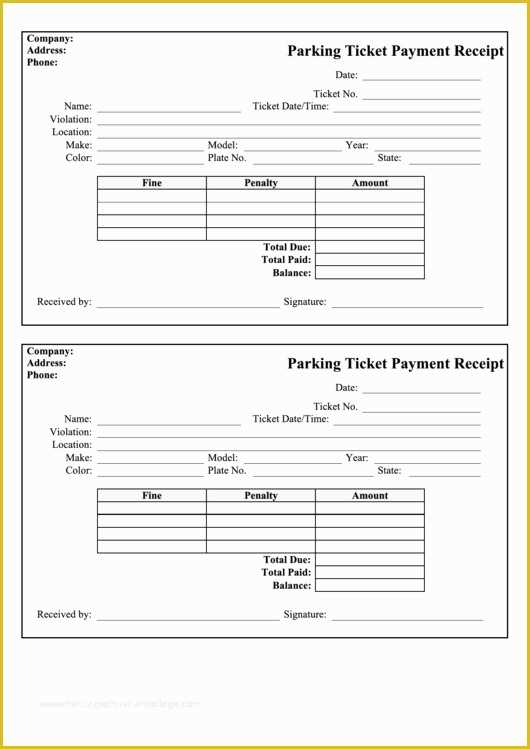Parking Ticket Letter Template for Effective Appeals

Receiving an unfair fine can be frustrating, but the good news is that you have the right to challenge it. Knowing how to craft a clear and compelling appeal can increase your chances of having the charge reduced or completely dismissed. By following the right process, you can present your case in the most effective way possible.
In this guide, we will walk you through the essential steps for drafting an appeal. From organizing your reasons to using the appropriate tone, each element plays a crucial role in making your case stand out. The key is to present all relevant facts in a concise and professional manner while also addressing the specific grounds for contesting the fine.
Whether you’re appealing an unfair charge or contesting a mistake, understanding how to structure your argument can make all the difference. Follow the tips and guidelines provided to help you navigate the process smoothly and efficiently.
Why You Need a Parking Fine Appeal
When you receive a fine, especially one you believe to be unjust, it’s essential to respond effectively. A well-drafted appeal can provide the opportunity to resolve the situation in your favor. Without submitting a formal response, you risk missing out on the chance to challenge the charge and avoid unnecessary financial burden.
Here are several reasons why submitting an appeal is critical:
- Correct Errors: Administrative mistakes can happen. A formal request gives you a chance to point out inconsistencies or inaccuracies in the issued fine.
- Clarify Your Situation: There may be circumstances, such as unclear signs or technical issues, that led to the misunderstanding. Explaining your side can help clarify things.
- Financial Relief: By contesting a charge, you may be able to have it reduced or canceled altogether, saving you money.
- Show Responsibility: Submitting an appeal demonstrates that you are taking responsibility for the situation and are willing to follow the legal process.
Ultimately, having a clear, structured appeal ensures that you are addressing the issue correctly and increases the likelihood of a favorable outcome. It’s your opportunity to present your case and potentially reverse a decision that may not have been justified.
Key Components of a Fine Appeal
To successfully challenge a fine, your appeal must contain specific elements that demonstrate the validity of your argument. A well-structured appeal includes key details that ensure your case is clearly understood and effectively presented. Each part of the appeal plays a significant role in making your argument persuasive and compelling.
Essential Information
Start by including all necessary information to verify the fine and your identity. This typically includes:
- Fine Reference Number: Clearly state the number associated with the fine for easy identification.
- Your Details: Full name, address, and contact information to ensure the authorities can reach you.
- Date and Time: Specify when the fine was issued to provide context for the situation.
Argument and Justification
The core of your appeal should focus on explaining why the fine is unjust or incorrect. This part should be factual and objective, covering the following:
- Clear Explanation: Describe why you believe the fine was issued in error or how circumstances may have contributed to the situation.
- Supporting Evidence: Attach any documentation, such as photos, witness statements, or records, that help back up your claim.
- Legal Grounds: If applicable, reference laws or regulations that support your argument or show that the fine was issued incorrectly.
By covering these essential components, you increase the chances of a successful appeal. Clear, concise, and well-supported arguments will help you present your case effectively.
How to Write a Convincing Appeal
To increase the likelihood of your fine being overturned, your response must be clear, concise, and compelling. A well-crafted appeal demonstrates your understanding of the situation while making a strong case for why the fine should be reconsidered. It’s important to strike the right balance between professionalism and persuasion, ensuring that all necessary facts are presented in a logical, respectful manner.
Start by organizing your argument in a straightforward way. Focus on the key points that support your claim and provide concrete evidence whenever possible. Avoid excessive detail that might distract from your main message, and make sure to keep your tone polite and respectful, even if you believe the fine was unjust. Strong writing not only improves your chances of success but also reflects your seriousness in addressing the matter.
Here are a few tips to help you write a convincing appeal:
- Be Clear and Direct: Avoid jargon or overly complex language. Keep your explanation simple and to the point.
- Provide Evidence: Include any relevant documents, such as photos or witness statements, to support your claims.
- Stay Professional: Maintain a respectful tone, even if you are frustrated. This helps in making your appeal more credible.
- Be Honest: If there were mistakes on your part, acknowledging them and explaining the circumstances may improve your chances of leniency.
By following these guidelines, you will create a strong appeal that is more likely to be taken seriously and result in a favorable decision.
Common Mistakes to Avoid in Appeals

While crafting your appeal, it’s essential to avoid certain pitfalls that can undermine your chances of success. Even a minor error in your approach can lead to a rejected appeal or a prolonged process. By being aware of the common mistakes and steering clear of them, you can present a stronger, more compelling argument that increases your likelihood of success.
Vague or Incomplete Information
One of the most common mistakes is providing unclear or insufficient details. Without the necessary facts, your case may lack the clarity needed to be taken seriously. Always ensure that you:
- Provide complete personal details: Full name, address, and reference number for the fine.
- Explain your reasoning: Be specific about why the fine is unjust and provide context.
- Include supporting evidence: Attach relevant documents such as photographs, records, or statements that back up your argument.
Emotional or Aggressive Tone
Another significant mistake is adopting an overly emotional or confrontational tone in your appeal. While it’s understandable to feel frustrated, expressing anger or making hostile statements can harm your case. Appeals should be respectful and professional, even if you believe the fine was unfair. Focus on presenting facts rather than venting your frustrations. A well-reasoned, polite response is always more persuasive than an emotional one.
By avoiding these common mistakes and maintaining a clear, respectful, and well-supported argument, you increase your chances of successfully challenging the fine.
How to Submit Your Appeal Correctly
Submitting your appeal in the right way is just as important as writing it effectively. The process of sending your response ensures that it reaches the appropriate authorities and is reviewed properly. Following the correct submission procedure minimizes the risk of delays or issues that could affect the outcome of your case.
Choose the Right Submission Method
Ensure that you submit your appeal through the proper channels. Different organizations or authorities may have specific requirements for submitting appeals. Here are common methods:
- Online Submission: Many authorities offer online portals where you can upload your appeal. This is often the fastest and most convenient method.
- Postal Mail: If submitting by mail, use a tracked service to confirm that your appeal is delivered to the correct address.
- Email: If allowed, sending your appeal via email can expedite the process. However, always check for required formats or additional documents.
Verify Your Appeal Before Sending

Before you send your appeal, make sure that all the necessary details are included and that the document is free from errors. Double-check the following:
- Correct Information: Ensure your personal details, fine reference number, and date are accurate.
- Attachments: Include all relevant supporting evidence or documentation that backs up your appeal.
- Deadline: Be mindful of the submission deadline. Late appeals may not be considered, even if the reasons for the fine were unfair.
By carefully following these steps, you ensure that your appeal is submitted correctly and stands the best chance of being reviewed favorably.
What to Do if Your Appeal Fails
If your appeal is unsuccessful, it’s important not to give up right away. While a rejection can be disheartening, there are still steps you can take to address the situation. Understanding your options and next steps will help you navigate the process more effectively and decide whether further action is worth pursuing.
Consider Your Options
After receiving a negative response, you have a few choices. Some options might include requesting a review, paying the fine, or escalating the matter further. It’s crucial to assess the situation carefully before deciding on the next step.
| Option | Details |
|---|---|
| Request a Review | Many authorities allow you to ask for a further review, especially if new evidence or information comes to light after your initial appeal. |
| Pay the Fine | If the appeal is rejected, paying the fine promptly can prevent additional fees or legal action. |
| Seek Legal Advice | If you believe the fine was unjust or the decision is unreasonable, consulting a lawyer might help you explore more advanced legal options. |
Take Action Based on Circumstances
Each case is unique, so carefully consider the next move based on the specifics of your situation. Sometimes, persistence can lead to a successful outcome, especially if there are grounds for a review. However, if it’s not worth contesting further, paying the fine might be the simplest resolution.
Ultimately, it’s important to stay informed about your rights and options to handle any situation that may arise after a failed appeal.